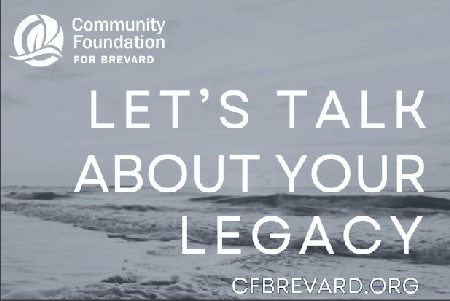Gen Z’s struggle with stress derives from myriad sources
January 17, 2019
In its annual Stress in America™ survey, the American Phycology Association found that Generation Z respondents reported the highest average stress levels of all generations surveyed. This is the APA’s 12th annual survey on stress, partnering with market research company Harris Poll.
It covers the levels and causes of stress experienced by Americans, its impact on people’s lives and common coping strategies.
The APA defined Generation Z participants as those between the ages of 15 and 21, but the label is often extended to anyone born between the mid-90s and the early 2000s.
Symptoms can include feelings of depression, lack of motivation and energy, anxiety, sleep deprivation, and unhealthy eating habits.
“It’s clear that social media is an enormous part of Gen Zs’ lives, and for more than half of them, it provides a feeling of support. The flip side, however, is that nearly half say social media makes them feel judged, and nearly two in five report feeling bad about themselves as a result of social media use,” according APA, Stress in America survey
Regardless of one’s opinion on it, it’s hard to avoid social media. A separate survey conducted by marketing company Marketo found that “52 percent of Gen Z uses Youtube or social media for typical research assignments.” In fact, another survey by research agency Culture Co-op estimated that “a full 69 percent say Youtube is where they go to learn about pretty much everything.”
Generation Z is the first of all the generations to actually grow up using the World Wide Web as we know it today: digital videos, online gaming, and extensive encyclopedic knowledge. For that reason, not much is known yet about the effects of such extensive exposure to screens on development.
With the APA report suggesting such split feelings toward social media, it’s difficult to identify how much that aspect of the web in particular influences the overall health of Gen Z.
“I think [in older generations] they didn’t have many expectations [other than what they saw on television,” junior Julia Travis said, “but nowadays we have to deal with social media, which is much more immediate.”
Aaron Milton, a Palm Bay counselor with experience treating substance abuse in young adults, said a simple but useful question to ask oneself about social media is, “Am I leaving it feeling excited and enjoying life or am I leaving it feeling depressed?”
Depending on that answer, users may be able to reduce stress by reducing time spent on social media. However, due to the role it plays in so many aspects of our lives, completely eliminating it may not be a feasible option.
“I think [the solution is] going to be unique to each person,” Milton said. “I think that’s a good thing to sit down and talk about with a counselor.”
He went into the importance of users recognizing and setting their own limits, along with the role that counseling can play in that.
“It used to be that there was a stigma about going to the shrink,” Milton said. “I think there has been a lowering of that stigma. Mental health is just one aspect of who we are.”
“More than eight in 10 (81 percent) of Gen Zs between the ages of 18 and 21 report money as a source of significant stress, with nearly as many (77 percent) saying the same about work,” according to the APA, Stress in America survey.
Financial concerns are among the most common stressors, yet it’s one of the ones people find the hardest to talk about, given its personal nature. The leading cause of financial stress cited by the report’s respondents is their families not having enough money, followed by personal debt, housing instability and lack of food.
“The stress of money in my family is very high especially with college coming up,” senior Alexia Potter said. “Right now we don’t know how we’re going to afford college, so it’s putting a lot of strain on my parents and myself to work more hours.”
Potter isn’t alone in her family’s struggle. Online employment agency Adecco found the cost of education is a concern for nearly a quarter of Gen Z individuals. In addition, another study by Culture Co-op stated that “78 percent of Gen Zs say traditional four-year degrees no longer make economic sense.”
Many students at West Shore hope to alleviate this pressure through a combination of scholarships, the main one being the Bright Futures Program. Unfortunately, extra costs such as housing, meal plans and textbooks still add up to a substantial bill.
“Once you’re living on your own and your income is your livelihood, [it can be difficult to handle the stress],” Milton said.
He described a concept called the “locus of control” that can help manage one’s worries. There are two types of loci — internal and external. An internal locus of control is the belief that one has the ability to influence the outcome of their lives. An external locus of control is the belief that one’s life is just determined by a mix of external factors.
“Sometimes that’s helpful to be able to say it’s in the will of God,” Milton said. “At the same time, there can be some comfort in saying ‘What I do matters.’”
He warned that to over-rely on either locus is dangerous, but with balance, individuals can better identify aspects of their lives that they can and can’t control. He gave the example of a job interview.
Individuals can improve their chances for success by dressing better, educating themselves on the company and preparing answers to questions, but in the end they have no control over what the interviewer asks them about or what they think of them.
According to Milton, knowing the difference between what you can affect and what affects you is the key to managing stress.
“In substance abuse, we focus a lot on the serenity prayer,” he said.
The serenity prayer is as follows: God grant me the serenity to accept the things I cannot change, courage to change the things I can, and wisdom to know the difference.




















































